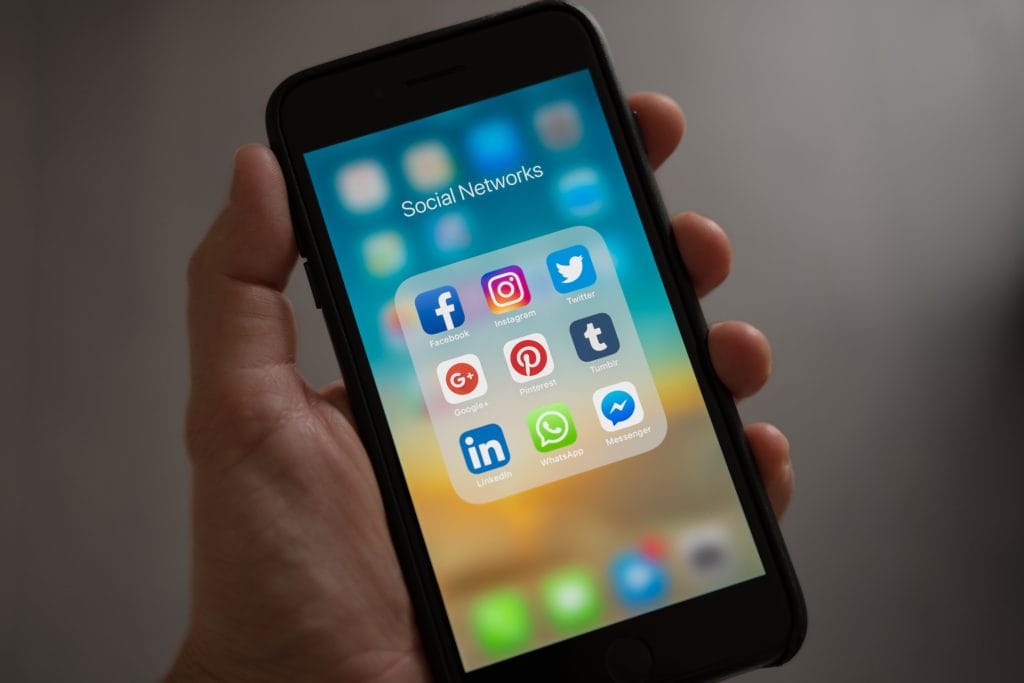While it’s important to have a social media presence, simply posting daily or running sponsored ads isn’t enough. You definitely need to understand your target audience and find new ways to create brand awareness. But what happens once you’ve put your brand out in front of hundreds, thousands, or millions of people? Do you just sit back and wait to see what happens next?
Nope. You start listening.
Overview
What is Social Listening?
Social media is just that: social. You can’t simply throw a bunch of information out on the web, hope it sticks where you want it, and wait for the sales to roll in. You have to become an active participant in the communities you’ve created and, more importantly, you need to remain consciously aware of what people are saying about you in the online sphere.
The act of social listening is a critical component of overall community management. The feedback you see on social channels, whether sent directly to you or simply posted in a public venue, is going to play a role in not just your online engagement, but in the development of your customer service processes as well. What you learn via social listening will give you a better idea as to what your customers like and dislike, helping you identify pain points for improvement.
Why Social Listening is Important
A lot of business owners think that the identification of the target audience or demographic is something that is reserved for the start of the marketing process. The truth is that your audience may evolve with your business. Social listening helps you to better understand who is talking about you and why.
Even better? It’s not all about you.
Social listening can help you to better understand what your target audience is saying about your competitors. This information will help you figure out what you offer that they don’t, how you can solve problems they aren’t solving, and where you’re positioned in the marketplace in comparison.
What to Look For
The first thing you need to understand is that social listening is not the same thing as social media monitoring. The latter is for collecting, reviewing, and analyzing data. On the other hand, monitoring is all about the numbers – impressions, likes, comments, shares, mentions, and follower growth.
Social listening is about analyzing the mood of the people who are talking about you. The fact that your brand was mentioned 1,726 times on Twitter may seem like something to be proud of until you realize that 80 percent of those mentions are gripes about a product that doesn’t perform properly.
So what should you be looking for? Look for any mention of the following, whether written in full or in the form of a hashtag:
- Your full brand name
- Industry-specific keywords
- Your company’s branded hashtags
- Your unique product or service names
- The names of your CEOS or high-profile employees
- Your competitor’s names, CEO names, and hashtags
- The handles your brand uses on any social media channel
- Your general business slogans or specific campaign slogans
Note that, once again, you need to look for mentions of your brand written out in full and not just hashtags. A lot of people will hop on social media to write a complaint (or praise) and will not take the time to look up hashtags or handles. They’ll just write a simple sentence and an entire conversation will follow.
What to Do with Your Social Listening Data
Ok, so you’ve gathered quite a bit of data and you’re looking at what people are saying. Some people are happy, some people are mad, and some are neutral and exploring their options. What are you going to do with all of this information?
Improve Your Customer Service Experience
Seeing complaints or concerns about your products and services? Make sure you are engaging with these customers whenever possible. People are prone to complaining online before they actually contact customer service for help, if they ever take it that far.
Reaching out to those who have questions, concerns, or complaints to solve their problems is a great way to build brand loyalty. People who feel cared for are often repeat customers.
Mitigate an Online Crisis
We’ve all seen stories about brands that have been annihilated online thanks to a bad review. A story is picked up by a big blogger or the right influencer and suddenly people who have never heard of a brand are leaving comments and reviews. A brand’s online reputation can be destroyed within hours. The sooner you identify a problem, the sooner you can take action (hopefully before it goes viral).
You may not be able to avoid all of the damage, but you can certainly minimize it.
Revamp Your Social Strategy
Social listening should definitely be a part of your overall social media strategy. This type of campaign will tell you exactly which platforms are more responsive to your message and which need work. You’ll also be able to easier identify whether or not you need to make some changes to the types of content you’re producing. You may even find new influencers who are mentioning your products, giving you the opportunity to build stronger relationships for future campaigns.
Product Ideas
One of the coolest aspects of social listening is the ability to figure out what gaps there are in the market. This is why it’s so important to monitor what is being said about your competitors as well as your own brand. You can make improvements to your existing products, develop new services, and so much more.
Social Listening Tools
Social listening is a bit of work. Not being able to rely on hashtags and handles FAQ alone means it can be easy to miss social mentions. Social listening tools make it easier to plug in all of your data and do all of your listening work from one place.
Of course, there are a lot of choices out there. Differences in features and price tags are especially common. Test drive a few to see which are best at helping you meet your goals and get access to the right information.
If you do opt to use a tool, make sure it can pull data from as many social platforms as you feel necessary. It should also offer data analysis and be easy to use.
Not into do-it-yourself options? Outsource the process to a marketing agency instead. Having someone to stay on top of social listening can greatly reduce your workload, freeing you up to focus on more important tasks.
At the end of the day, social listening isn’t going to solve every brand issue. What it will do is give you the information you need to shift gears, create solutions, and build better online strategies. You’re going to be amazed at the way better social listening transforms your approach to online marketing.
Contact us today to get the conversation started!










